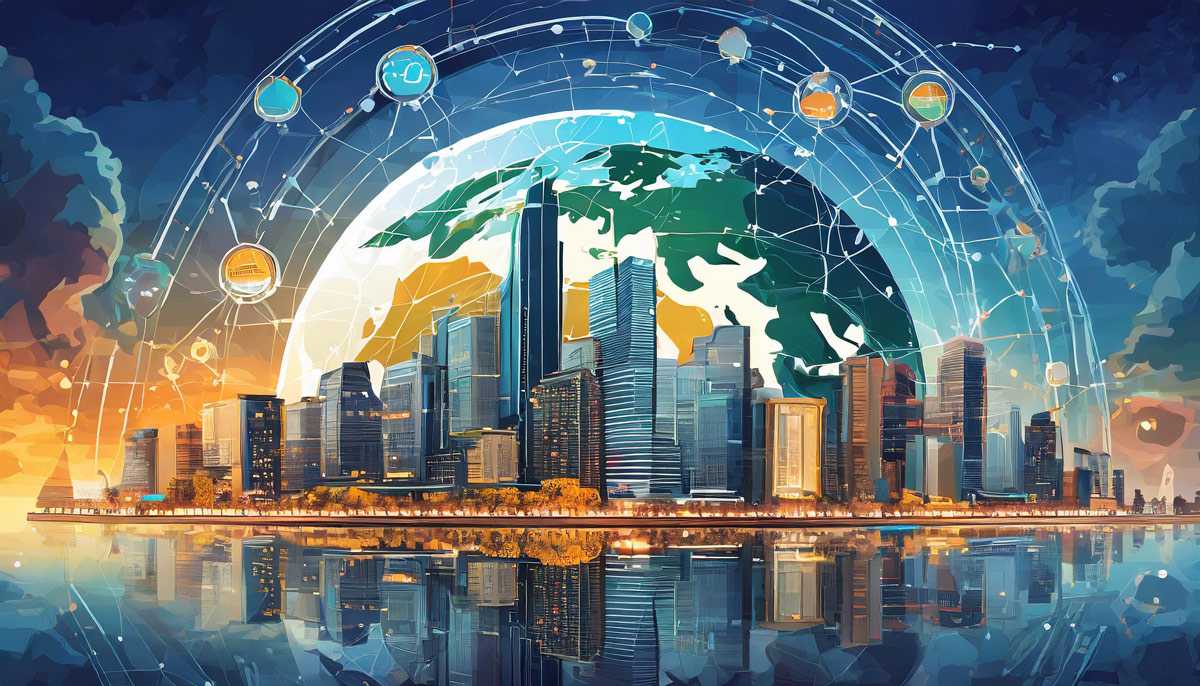

The start of this New Year represents a quite extraordinary moment. It’s hard to imagine a time in recent history when there was so much at stake globally and a time when individuals had more resources and a greater responsibility to contribute to the public discourse and bring about meaningful change.
The events of 2024 will indisputably shape the foreseeable future, designated as a year marked by significant elections. Seventy six nations are set to cast their votes, empowering over half of the world’s population to have their say, although only about half of these countries ensure fully free and fair elections. The participating countries, include all twenty seven EU Member States as well as the world’s most populous nations including Bangladesh, Brazil, India, Indonesia, Mexico, Pakistan, Russia, Taiwan, and the United States. While the US Presidential election will naturally dominate focus because of its inevitable effects on the global economy and on global security, other elections, particularly in the EU, may reveal new political fault lines.
The year 2024 is rife with social, economic, and geopolitical challenges, creating complexities that all leaders, especially those in business, will need to tackle. When Hamas attacked Israel on October 7th last year, few would have predicted the scale of human suffering that transpired that day and in the months that followed. Far fewer still would have anticipated that global supply lines, the cost of raw materials and the availability of finished goods would be impacted by terror attacks on global shipping lines tied to these events. We can confidently predict that 2024 will be marked by accelerated and amplified uncertainty and unpredictability.
Entering the New Year, public discourse deteriorates at the same pace as the intensifying gravity of the issues at stake. Worldwide, polarised debates, saturated with falsehoods and hypocrisy, persist. Western elites engage in insular conversations, seemingly unchanged by the lessons of recent years. The risk of cosmopolitanism alienating large swathes of the Western population looms large, exacerbating the marginalisation of an aging electorate increasingly detached from the concerns of Gen Z activists.
The green transition gains momentum, yet the vision for a sustainable future varies widely, from the US to China and the EU to emerging mid-sized powers. Predicting winners and losers amid competing priorities, models, and aspirations across nations and regions proves challenging.
Arguably, a global rebalancing is underway, reflecting an emerging multipolar context. Many emerging powers now select economic and security partners based on new opportunism, free from traditional post-imperial ties. The expansion of the BRICS to include Egypt, Ethiopia, Iran, Saudi Arabia, and the United Arab Emirates highlights this confident authority and opportunity. However, concerns remain regarding the critical needs of other emerging nations and how these will be addressed in this evolving world order. It is clear that, without the natural resources, renewable energy potential, and human capital that Africa offers, the EU will struggle to achieve its desired goal of being a global economic and political counterpoint to the US and China. A bold vision for a shared future is yet to be articulated for these neighboring regions, and the same applies to other neighboring territories in different parts of the world.
This is a moment when competing industrial policies vie to establish greater strategic autonomy, supply chain predictability, secure access to rare earth minerals, and attain greater renewable energy independence and security. In this context, corporate leaders globally need to be alert to discriminatory trade policies and initiatives that may favor them in the short term but risk limiting access to crucial emerging markets and power centers in the future. On the nearer horizon, there remains a very real risk of a US/EU trade dispute tied to the green transition.
One underlying concern in this era of massive state subsidies for the green transition is that much needed funds may not reach the entrepreneurs and innovators best positioned to drive the transition to a greener economy and secure essential climate change outcomes. There is a risk that achieving green goals in the West remains dependent on importing new tech from the lowest cost supplier, essentially exporting the carbon problem to other parts of the world.
In a year of political change, strong, confident global leadership is in short supply. The EU may seek to leverage “the Brussels effect” to play a more purposeful role in shaping policy and outcomes globally. EU leaders recognize the opportunity 2024 presents but may struggle to leverage the moment due to the risk of a populist surge in the European Parliament elections. In the Middle East, regional powers play a decisive role in shaping outcomes and may be key to securing peace, a role that the US alone once had the authority to achieve.
2024 will be defined by a greater focus on cyber security, data sovereignty and regulating AI. There is a palpable risk that the proliferation of AI technologies could empower malign actors to produce disinformation at an unprecedented scale, adding a new layer of complexity to the already intricate fabric of global information flows. The pace at which AI evolves threatens to outstrip even the revolutionary rise of social media or the onset of the internet, demanding a vigilant and adaptive approach to address its implications.
In tandem with the AI surge, the realm of cybersecurity emerges as a critical battleground for safeguarding our interconnected world. The digital landscape is rife with potential vulnerabilities, and as technology evolves, so do the tactics of cyber mercenaries. The interconnectedness of nations and businesses demands a holistic approach to cybersecurity, one that transcends borders and collaborates across sectors.
Whether addressing cybersecurity or confronting any of the looming challenges ahead, recognising the necessity of a multi-stakeholder or poly-lateral approach is paramount as we seek solutions. Effectively tackling these issues demands the vital collaboration of government, business, and civil society. By finding common ground and working collectively, we can identify, address, and overcome these challenges. This joint effort not only fosters consensus but also guarantees the protection of shared goals and ambitions.
Faced with the imperative to navigate the intricate landscape of the global challenges ahead, the question becomes not just a rhetorical one but a call to action. Those wielding power and authority must not remain passive observers; instead, they are called to be active and engaged participants in addressing critical issues. The onus lies on individuals with influence to mobilise not just themselves but also their staff, colleagues, family, and friends, fostering a collective effort in participating in the public dialogue and exercising the fundamental right to vote. It is a call for intentional and purposeful involvement, recognising that our combined actions shape the trajectory of our shared future.


